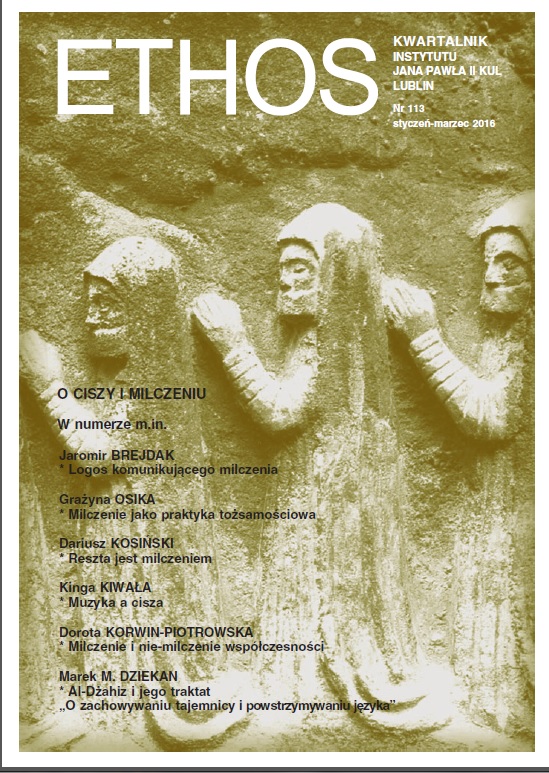Milczenie, pamięć, tożsamość. Fantazmat „Cygana” i ambiwalencja nowoczesności
Silence, Memory, Identity: The Phantasm of a ‘Gypsy’ and the Ambivalence of Modernity
Author(s): Sławomir KapralskiSubject(s): Social differentiation, Ethnic Minorities Studies
Published by: Katolicki Uniwersytet Lubelski Jana Pawła II - Instytut Jana Pawła II, Wydział Filozofii
Keywords: the Roma/‘Gypsies'; silence; social memory; subject; modernity; phantasm;
Summary/Abstract: The article presents an interpretation of the process of mythologizing the Roma by placing them in the role of a ‘significant Other’ in the European modernity. In this process, the real Roma have been substituted by the phantasm of a ‘Gypsy’ which condenses anxieties and repressed desires of modern individuals. The author’s intention is to deconstruct the question of why the Roma keep silence regarding their history, which tacitly—and wrongly—assumes that silence equals forgetting. This question is in the course of the argument substituted with a different one, namely, of why, until very recently, the Roma have been perceived as a people without history, living in an eternal present and disregarding both the past and the future. To provide the answer, the author refers to the Lacanian terminology as employed in the Critical Theory and presents the idea of non-historical ‘Gypsies’ as a phantasm of the split modern subject that constructs ‘Gypsies’ on the one hand as a barbarian obstacle to the process of modernization and, on the other hand, as those whose ‘undeserved pleasure’ is a projection of the repressed dreams of modernity. Next, it is argued that genealogy of memory as studied within memory studies, that is the process that leads from individual memories, through social memory, to collective one and the other way around, is based on the same logic as the genealogy of modern subject and involves coercive mechanisms such as differential deprivation of history, silencing, muting, and erasing of the memories that do not fit the institutionally legitimized vision of history. The Roma are therefore presented here not as silent about their history but as forcibly muted, and the marginalization of their memory as part of their social exclusion. In conclusion, it is argued that the phantasm of a ‘Gypsy’ served as an ideological rationalization of the genocide of the Roma during the Second World War and thus that there is a close affinity between the genealogy of modern subject, the silencing of memory, and the crime of genocide.
Journal: Ethos. Kwartalnik Instytutu Jana Pawła II KUL
- Issue Year: 29/2016
- Issue No: 1
- Page Range: 185-202
- Page Count: 18
- Language: Polish
- Content File-PDF

